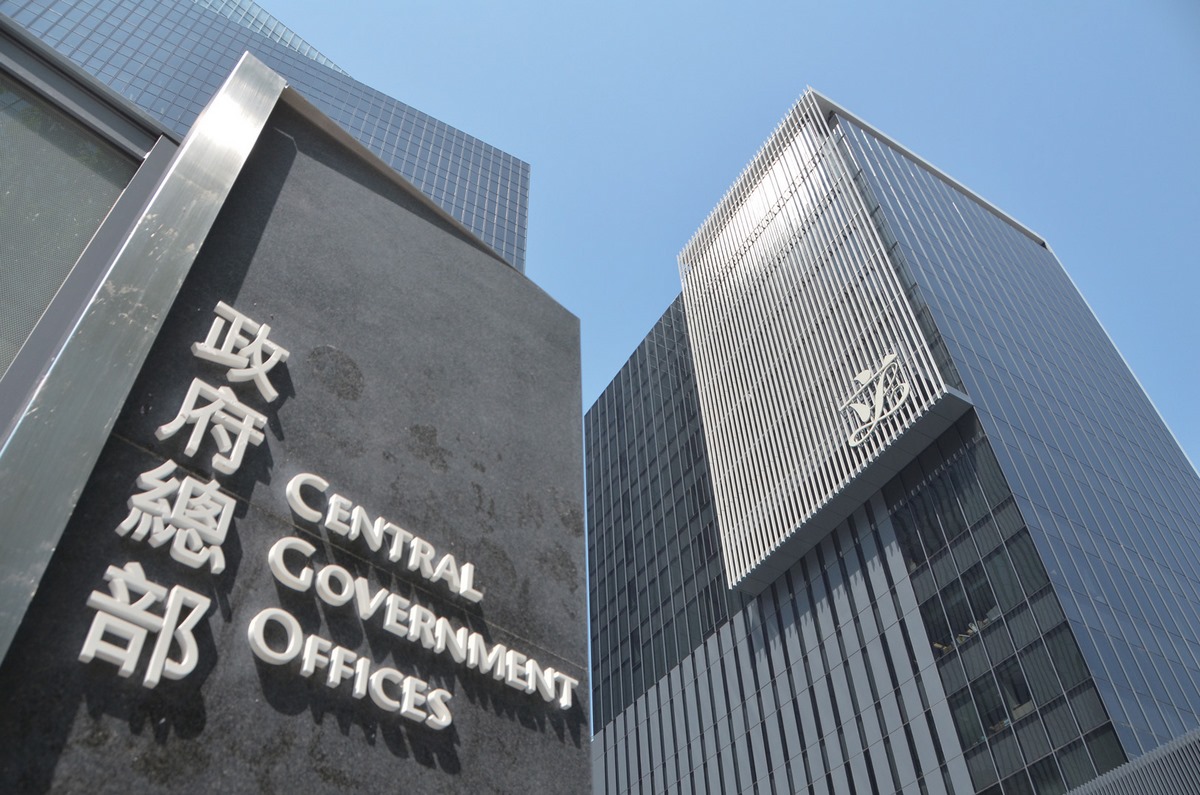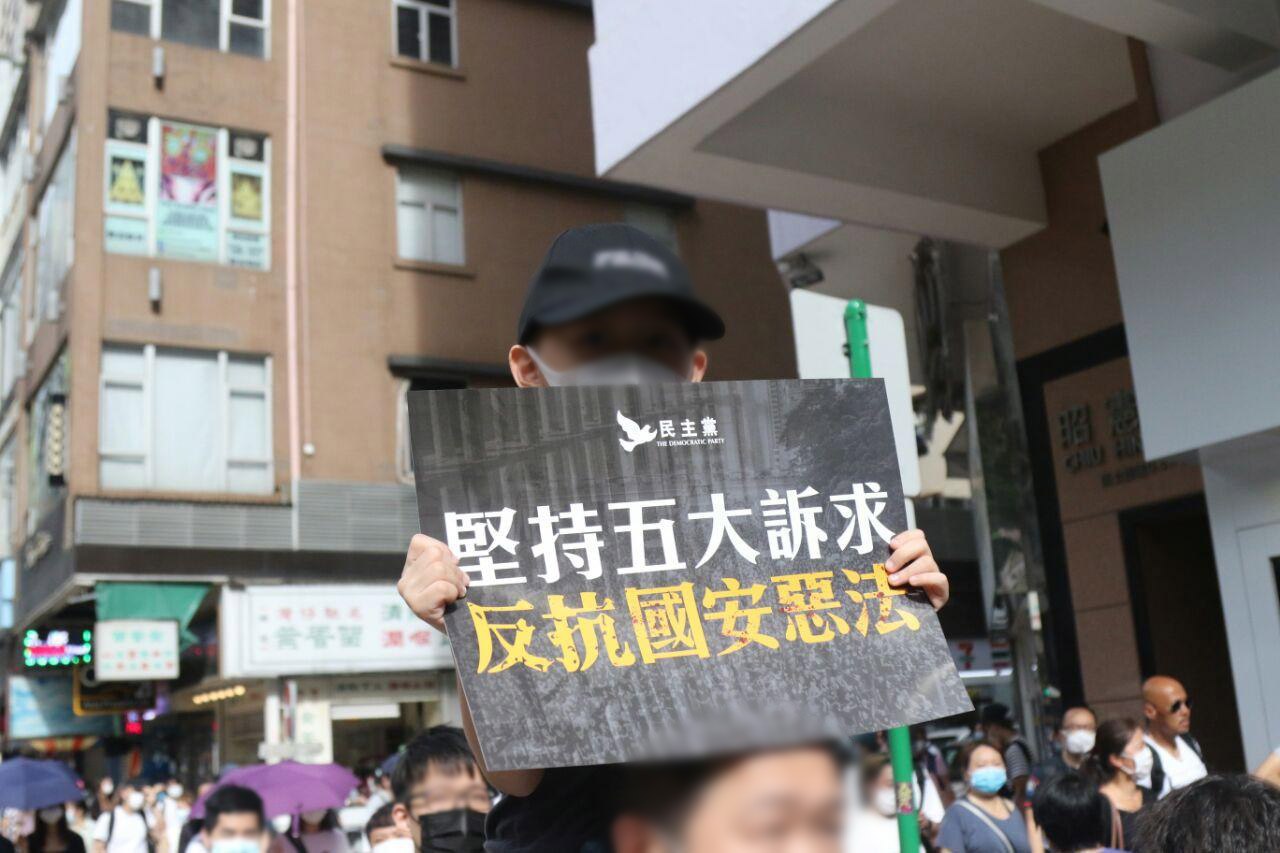The amazing thing about this week’s mass arrests is that the alleged crime of those detained is their plan to follow a constitutional procedure laid down in the Basic Law. You would think this could hardly be illegal.
Not according to Senior Superintendent Steve Li of our new local Gestapo, the police national security unit.

The plan, he said, was to “handicap government” by using a legislative majority to veto budgets twice, thereby pushing the Chief Executive to resign and forcing the government into a shutdown.
This is a piece of constitutional codswallop so profound that I hardly know where to start. Let us take a simple point first. If the Chief Executive resigns that does not “force a shutdown” of anything. Her number two takes over – I think at the moment the poisoned chalice would pass to the Chief Secretary, Matthew Cheung – and a fresh election is held to produce a new CE.
There is no excuse for an error in this matter because the first Chief Executive, Tung Chee-hwa, did in fact resign – for “health reasons”, though he seems to have enjoyed robust health ever since and is still with us. Nothing was shut down, chaos did not ensue and in due course a replacement was installed.

It may seem a strange thing to veto the budget, but this is a procedure specifically provided for in the Basic Law to deal with a situation in which the Legislative Council disapproves of the Chief Executive.
This always seemed rather a long shot. The elections to the council were carefully designed to produce a docile majority and the election of the Chief Executive even more so. Still, the drafters did not expect that efforts to produce the desired result would extend to arresting or disqualifying every plausible dissident candidate. So some provision had to be made.
The significance of the budget is not that vetoing it will bring the government to a standstill. Its significance is that it will indicate the depth to which disagreement has reached. After all, an unpopular government will often find that individual items of legislation come unstuck.
Indeed it is at least theoretically possible for a government to continue without legislating at all. Charles I managed it for 11 years and might have gone on longer if he had resisted the temptation to fiddle with the Church of Scotland. This story did not have a happy ending, but it shows what is possible.

Money is another matter. A government which cannot get a money bill passed must face the fact that its time has come.
The provision in the Basic Law is discouraging, no doubt intentionally. If LegCo rejects the budget the CE is entitled to call a new LegCo election. Members who have rejected the budget will have to explain their conduct to the electors, while the CE can make the case for a more cooperative assembly.
If the new LegCo is substantially the same as the old one the CE can, if he or she has a galloping death wish or is being propelled down the path to constitutional Armageddon by advice from the Liaison Office, present the same budget. If it is again rejected, then he or she has to resign.
As I said before, this is not the end of the world. The number two takes over and a new CE is elected. Politics and administration continue.

Under present circumstances, alas, all this looks rather fanciful. Our government has effectively decided that chess is not its game and kicked the board over. The old rules no longer apply.
In a more tolerant and democratic world, of course, it would be astonishing if anyone ever went through the whole procedure of two budgets, and two elections.
The election of the second LegCo would be the decisive moment. If it appeared that the new LegCo was much like the previous one then the CE would have to consider either negotiating some desired concession or resigning straight away.
One could envisage circumstances in which such negotiation would be impossible: relations would be so toxic that no deal was on offer. The only thing which would placate irate legislators would be the CE’s head on a plate.

But that was not the case here. Not all the candidates subscribed to the “reject two budgets” scenario and those who did were not asking for a replacement CE, they were repeating the “five demands”.
So in the highly unlikely event that more than half of the next legislature comprised enthusiastic democrats there was surely some hope of compromise, if compromise was attempted. Unfortunately if Carrie Lam has any talent in this area she is not allowed to exercise it.
Still, arresting everyone concerned looks more like an effort to intimidate than a serious attempt to apply the law. The Basic Law is perfectly explicit about the procedure to follow if you are a legislator who disagrees fundamentally with the government’s policy in a particular area. It seems very odd that a candidate who states his intention to follow this procedure can be prosecuted for anything.
I realise that police training cannot cover everything, but Senior Inspector Li really has no excuse for the “flow chart” he exhibited to reporters, which included the beguiling but mendacious line “LegCo refuse to pass the budget twice to stop the operations of government.”

If a budget is not passed, LegCo passes instead what is known in some places as a “continuing resolution” which allows the government to continue on a day-to-day basis following the old budget. Members are particularly likely to vote for this if they are facing an election, because nobody wants to explain to the electors why they closed every swimming pool and police station in Hong Kong.
Well, in these grim times we do not expect much from police press conferences, and explaining a dawn swoop on 50-odd assorted politicians is not easy. Still, I wonder about Mr Li.
In Gray’s “Elegy written in a country churchyard” he ponders the tomb of “Some village Cromwell guiltless of his country’s blood.” What are we going to write of Mr Li? Some village Himmler? Not guiltless, unfortunately.
Support HKFP | Policies & Ethics | Error/typo? | Contact Us | Newsletter | Transparency & Annual Report | Apps
Help safeguard press freedom & keep HKFP free for all readers by supporting our team
| HKFP is an impartial platform & does not necessarily share the views of opinion writers or advertisers. HKFP presents a diversity of views & regularly invites figures across the political spectrum to write for us. Press freedom is guaranteed under the Basic Law, security law, Bill of Rights and Chinese constitution. Opinion pieces aim to point out errors or defects in the government, law or policies, or aim to suggest ideas or alterations via legal means without an intention of hatred, discontent or hostility against the authorities or other communities. |

More HKFP OPINION:
HKFP has an impartial stance, transparent funding, and balanced coverage guided by an Ethics Code and Corrections Policy.
Support press freedom & help us surpass 1,000 monthly Patrons: 100% independent, governed by an ethics code & not-for-profit.










